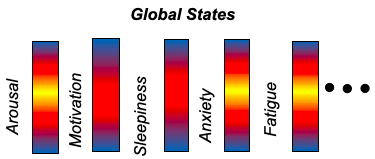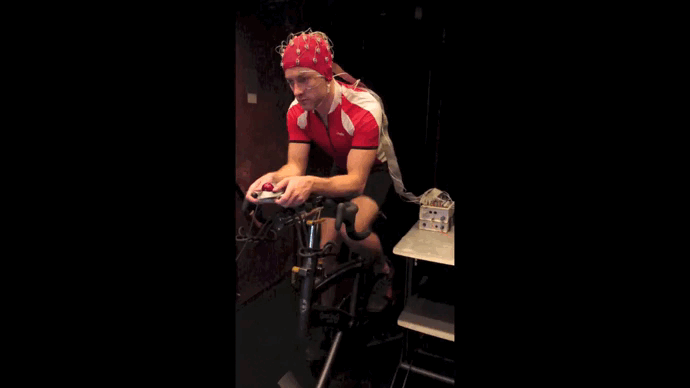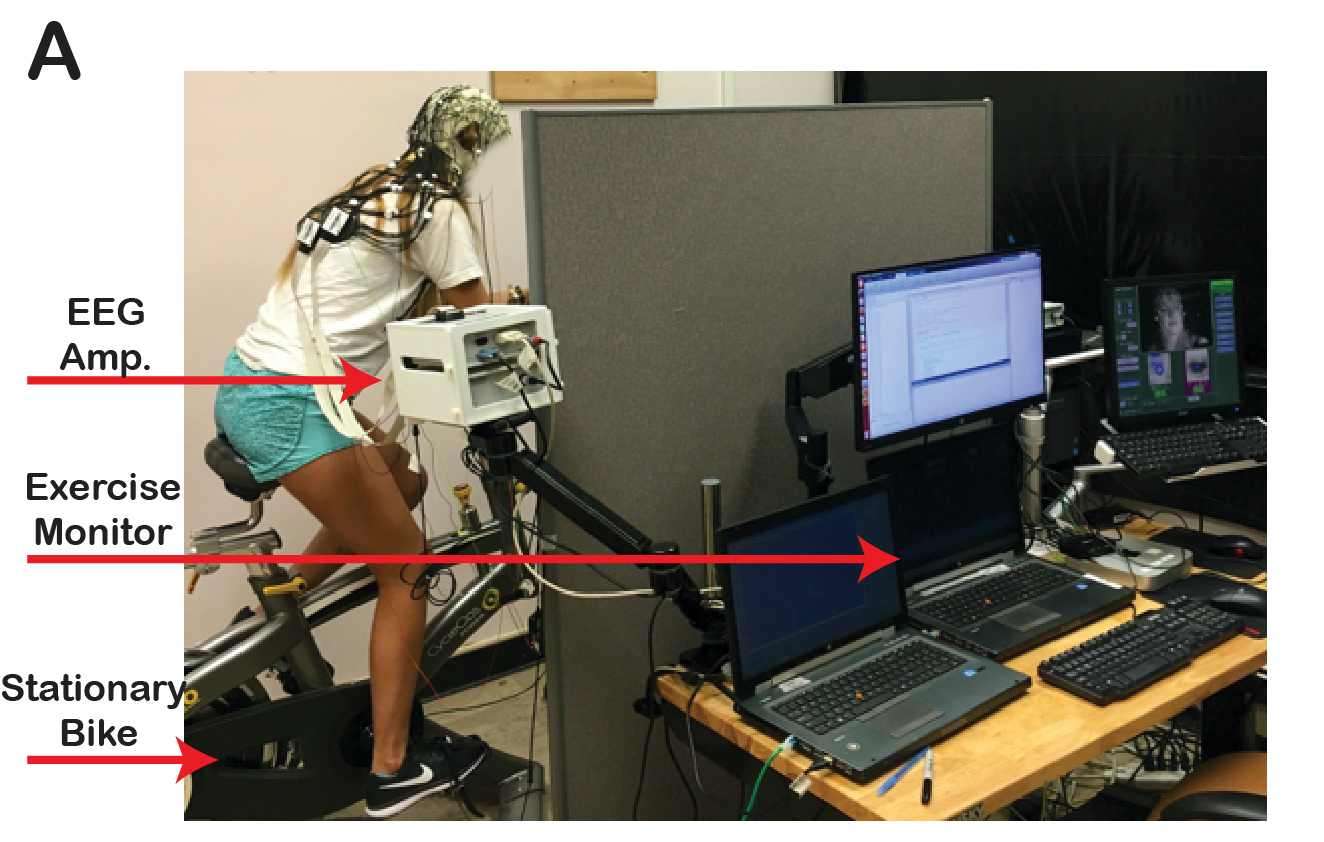How do global behavioral states influence the coding of information during perceptual and cognitive tasks?
An organism’s current behavioral state influences ongoing brain activity. Nonhuman mammalian and invertebrate brains exhibit large increases in the gain of feature-selective neural responses in sensory cortex during locomotion, suggesting that the visual system becomes more sensitive when actively exploring the environment.

We are interested in how global behavioral states influence the coding of information during a variety of perceptual and cognitive tasks. Current studies include manipulations of state (e.g., stress) and studies investigating the interaction between physical fatigue and attentional priority.
Previous work in this theme includes our studies showing the effects of brief bouts of exercise on perceptual, attentional, and working memory tasks.
Pictured: A past exercise-cognition experiment, featuring a stationary bike and electrophysiological data collection with EEG.

